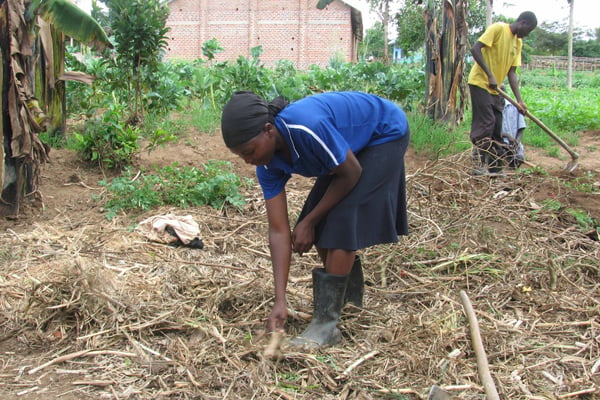Prime
Experts seek food safety measures

FAO country representative, Antonio Querido. Photo | Trevor Lutalo
What you need to know:
- The crop inspection and certification commissioner at the Ministry of Agriculture, Animal Industry and Fisheries, Paul Mwambu said the government with the help of the Food and Agriculture Organisation of the United Nations (FAO) and the European Union embarked on an assessment to identify gaps in the existing food safety and control systems
To fortify and enhance food control systems within Uganda, food safety experts have put forth a series of recommendations aimed at establishing a comprehensive food safety and control law.
The proposed law seeks to streamline the currently fragmented landscape of food safety regulations in Uganda, where multiple agencies oversee various aspects of food production, distribution, and quality control.
Addressing this regulatory gap, experts are advocating for the creation of a unified body to serve as a singular point of reference for all matters about food safety and control.
Under the proposed framework, this centralised authority would wield the necessary powers to enforce stringent standards across the entire food supply chain, from farm to fork.
By consolidating responsibilities under one umbrella authority, the aim is to enhance efficiency, coordination, and accountability in safeguarding the health and well-being of consumers.
Crop inspection
The crop inspection and certification commissioner at the Ministry of Agriculture, Animal Industry and Fisheries, Paul Mwambu said the government with the help of the Food and Agriculture Organisation of the United Nations (FAO) and the European Union embarked on an assessment to identify gaps in the existing food safety and control systems.
“Food safety and control has been scattered across many Ministries departments and agencies, this was one of the findings of this assessment report. One of the key things that the government has done is creating a new authority which is still in the offing that will regulate among others food safety and will be housed in the Ministry of Agriculture. This will help us consolidate the key functions in a one-stop centre,” Mwambu noted.
Mwambu, furthermore revealed that with the help of FAO under the Strengthening Food Control and Phytosanitary Capacities and Governance project, trained 35 focal point specialists across different ministries, departments and agencies to help steer the implementation and assessment of Uganda’s food safety and control strategies.
Food control system
Antonio Querido, the FAO Country Representative said it is imperative to assess the country’s national food control system, documenting its status, setting a baseline, and prioritising investments in Food Control, Food Safety and Quality Assurance across the entire Agrifood sector spectrum of Uganda.
“The project is based on a cutting-edge tool that was developed a few years ago by FAO and the World Health Organisation (WHO) to guide such assessments in a structured, transparent, and measurable manner throughout the entire food chain, measuring and evaluating progress over time. The tool is called the food control system assessment tool. As part of the project, 10 member countries of the African Union (AU), especially in the COMESA economic space, are using it, with the support of FAO, to assess their national food control systems systematically,” he noted.
Other key recommendations put forward by the experts include the adoption of international best practices in food safety management, the implementation of robust inspection and monitoring mechanisms, and the provision of adequate resources and training for food safety personnel.
Furthermore, the proposed legislation aims to introduce stringent penalties for non-compliance with food safety regulations, thereby incentivising adherence to standards and promoting a culture of accountability within the food industry.
Stakeholders across various sectors, including government agencies, food producers, distributors, and consumer advocacy groups, have expressed support for the proposed initiative. Many view it as a crucial step towards modernising Uganda’s food safety infrastructure and aligning it with global standards.
With the potential to significantly enhance public health outcomes and bolster Uganda’s reputation as a producer of safe and high-quality food products, the comprehensive food safety and control law represents a pivotal opportunity for progress in the nation’s food sector.
Exports
In recent times, Uganda has grappled with significant hurdles in exporting its agricultural produce both regionally and internationally. Notably, neighbouring countries such as Kenya and South Sudan have raised red flags over Ugandan maize shipments, rejecting tonnes of the commodity due to aflatoxin contamination surpassing UN-recommended safety levels.
For years, this recurring issue has cast a shadow over Uganda’s agricultural export sector, posing challenges and hindrances to its trade relationships with key regional partners.
Despite efforts to address the aflatoxin problem, including stricter regulations and quality control measures, the persistent rejections underscore the urgent need for comprehensive and sustainable solutions to safeguard Uganda’s reputation as a reliable supplier of safe and high-quality agricultural products on the global stage.




